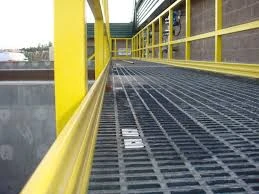
-
 Afrikaans
Afrikaans -
 Albanian
Albanian -
 Amharic
Amharic -
 Arabic
Arabic -
 Armenian
Armenian -
 Azerbaijani
Azerbaijani -
 Basque
Basque -
 Belarusian
Belarusian -
 Bengali
Bengali -
 Bosnian
Bosnian -
 Bulgarian
Bulgarian -
 Catalan
Catalan -
 Cebuano
Cebuano -
 China
China -
 China (Taiwan)
China (Taiwan) -
 Corsican
Corsican -
 Croatian
Croatian -
 Czech
Czech -
 Danish
Danish -
 Dutch
Dutch -
 English
English -
 Esperanto
Esperanto -
 Estonian
Estonian -
 Finnish
Finnish -
 French
French -
 Frisian
Frisian -
 Galician
Galician -
 Georgian
Georgian -
 German
German -
 Greek
Greek -
 Gujarati
Gujarati -
 Haitian Creole
Haitian Creole -
 hausa
hausa -
 hawaiian
hawaiian -
 Hebrew
Hebrew -
 Hindi
Hindi -
 Miao
Miao -
 Hungarian
Hungarian -
 Icelandic
Icelandic -
 igbo
igbo -
 Indonesian
Indonesian -
 irish
irish -
 Italian
Italian -
 Japanese
Japanese -
 Javanese
Javanese -
 Kannada
Kannada -
 kazakh
kazakh -
 Khmer
Khmer -
 Rwandese
Rwandese -
 Korean
Korean -
 Kurdish
Kurdish -
 Kyrgyz
Kyrgyz -
 Lao
Lao -
 Latin
Latin -
 Latvian
Latvian -
 Lithuanian
Lithuanian -
 Luxembourgish
Luxembourgish -
 Macedonian
Macedonian -
 Malgashi
Malgashi -
 Malay
Malay -
 Malayalam
Malayalam -
 Maltese
Maltese -
 Maori
Maori -
 Marathi
Marathi -
 Mongolian
Mongolian -
 Myanmar
Myanmar -
 Nepali
Nepali -
 Norwegian
Norwegian -
 Norwegian
Norwegian -
 Occitan
Occitan -
 Pashto
Pashto -
 Persian
Persian -
 Polish
Polish -
 Portuguese
Portuguese -
 Punjabi
Punjabi -
 Romanian
Romanian -
 Russian
Russian -
 Samoan
Samoan -
 Scottish Gaelic
Scottish Gaelic -
 Serbian
Serbian -
 Sesotho
Sesotho -
 Shona
Shona -
 Sindhi
Sindhi -
 Sinhala
Sinhala -
 Slovak
Slovak -
 Slovenian
Slovenian -
 Somali
Somali -
 Spanish
Spanish -
 Sundanese
Sundanese -
 Swahili
Swahili -
 Swedish
Swedish -
 Tagalog
Tagalog -
 Tajik
Tajik -
 Tamil
Tamil -
 Tatar
Tatar -
 Telugu
Telugu -
 Thai
Thai -
 Turkish
Turkish -
 Turkmen
Turkmen -
 Ukrainian
Ukrainian -
 Urdu
Urdu -
 Uighur
Uighur -
 Uzbek
Uzbek -
 Vietnamese
Vietnamese -
 Welsh
Welsh -
 Bantu
Bantu -
 Yiddish
Yiddish -
 Yoruba
Yoruba -
 Zulu
Zulu
Feb . 18, 2025 10:44
Back to list
Ladders & Handrails
The increasing demand for lighter, stronger, and more durable materials has made fiber-reinforced plastics (FRP) a staple in industries ranging from construction to aerospace. At the heart of these innovations are chemical products specifically designed for FRP applications. Understanding these chemical products is essential for manufacturers and engineers striving to optimize the performance and longevity of FRP materials.
Attention must also be given to fillers and additives, which modify the properties of FRP to meet specific requirements. They can enhance mechanical properties, reduce costs, or impart unique characteristics like flame retardancy or UV resistance. Fillers such as glass beads increase the modulus of elasticity, while fire-retardant additives like ATH (Aluminum Trihydrate) are incorporated to improve safety ratings without compromising the composite’s structural integrity. Integral to the successful application of chemical products in FRP is the precision and expertise in their handling. A deep understanding of the chemical interactions and conditions influencing curing and performance can significantly enhance the final product's quality. Professionals in this field continually refine their techniques, guided by extensive research and real-world testing to stay ahead of growing demands and stringent regulations. Innovation in chemical products for FRP applications is not merely about creating better composites; it's about paving the way for future advancements. As industries push toward sustainability, chemical producers are also developing bio-based and recyclable alternatives, ensuring that the progress in FRP technology aligns with global sustainability goals. For businesses and engineers aiming to excel in the FRP sector, a commitment to understanding and utilizing advanced chemical products is crucial. Building expertise in this area not only enhances product offerings but also establishes authority and trust among clients and stakeholders. With the right chemical foundation, FRP applications can achieve new heights of performance, reliability, and innovation.


Attention must also be given to fillers and additives, which modify the properties of FRP to meet specific requirements. They can enhance mechanical properties, reduce costs, or impart unique characteristics like flame retardancy or UV resistance. Fillers such as glass beads increase the modulus of elasticity, while fire-retardant additives like ATH (Aluminum Trihydrate) are incorporated to improve safety ratings without compromising the composite’s structural integrity. Integral to the successful application of chemical products in FRP is the precision and expertise in their handling. A deep understanding of the chemical interactions and conditions influencing curing and performance can significantly enhance the final product's quality. Professionals in this field continually refine their techniques, guided by extensive research and real-world testing to stay ahead of growing demands and stringent regulations. Innovation in chemical products for FRP applications is not merely about creating better composites; it's about paving the way for future advancements. As industries push toward sustainability, chemical producers are also developing bio-based and recyclable alternatives, ensuring that the progress in FRP technology aligns with global sustainability goals. For businesses and engineers aiming to excel in the FRP sector, a commitment to understanding and utilizing advanced chemical products is crucial. Building expertise in this area not only enhances product offerings but also establishes authority and trust among clients and stakeholders. With the right chemical foundation, FRP applications can achieve new heights of performance, reliability, and innovation.
Next:
Related Products









